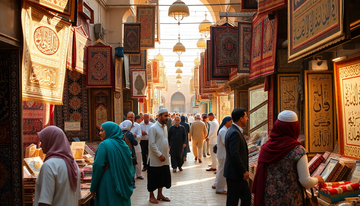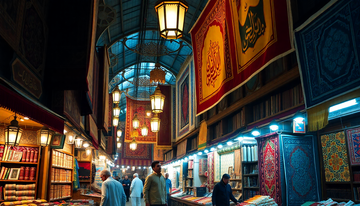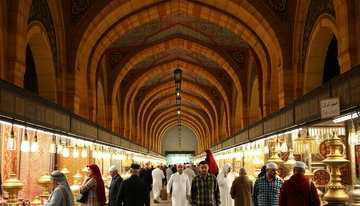Vous êtes-vous déjà demandé comment une usine de produits alimentaires halal s'y prend pour garantir la production de produits certifiés halal ? Examinons de plus près le processus complexe qui garantit que chaque produit quittant l'usine répond aux normes halal strictes.
Qu'est-ce qu'une usine alimentaire halal ?
Une usine de produits alimentaires halal est une installation dédiée à la production d'aliments et de boissons conformes aux lois alimentaires islamiques. Ces lois déterminent ce qui est autorisé (halal) et ce qui est interdit (haram) pour les musulmans. Le processus de production d'une usine de produits alimentaires halal est méticuleusement conçu pour respecter ces directives.
Mesures rigoureuses de contrôle de la qualité
L'un des aspects clés d'une usine de produits alimentaires halal est la mise en œuvre de mesures de contrôle qualité rigoureuses. De l'approvisionnement en matières premières à l'emballage final des produits, chaque étape est étroitement surveillée afin de garantir le respect des exigences halal. Cela comprend la vérification de la provenance des ingrédients, la détection des risques de contamination croisée et le maintien d'un environnement de production propre et hygiénique.
Processus de certification Halal
Avant qu'un produit puisse porter le label halal, il doit être soumis à un processus de certification rigoureux. Ce processus implique généralement une inspection de l'usine par un organisme de certification halal afin de garantir le respect de tous les critères nécessaires. Cela comprend la vérification des ingrédients utilisés, des méthodes de production employées et du respect global des normes halal.
Adhésion aux normes éthiques
Outre les exigences alimentaires, une usine de produits halal accorde une grande importance aux normes éthiques. Celles-ci incluent un traitement équitable des travailleurs, des pratiques durables et un approvisionnement responsable des ingrédients. En respectant ces valeurs éthiques, une usine de produits halal produit non seulement des produits certifiés halal, mais contribue également au bien-être général de la société.
Amélioration continue et innovation
Comme toute installation de production alimentaire, une usine de produits halal s'efforce constamment d'améliorer et d'innover. Cela peut impliquer la mise en œuvre de nouvelles technologies pour optimiser l'efficacité, le développement de nouveaux produits pour répondre aux exigences des consommateurs ou la recherche de solutions pour réduire l'impact environnemental. En restant à la pointe des tendances du secteur, une usine de produits halal peut continuer à fournir aux consommateurs des produits de haute qualité, certifiés halal.
En conclusion, une usine de produits alimentaires halal est une opération complexe qui exige une attention méticuleuse aux détails, le respect de normes strictes et un engagement envers des pratiques éthiques. En suivant ces directives, une usine de produits alimentaires halal peut garantir que chaque produit portant le label halal répond aux attentes des consommateurs musulmans du monde entier.




